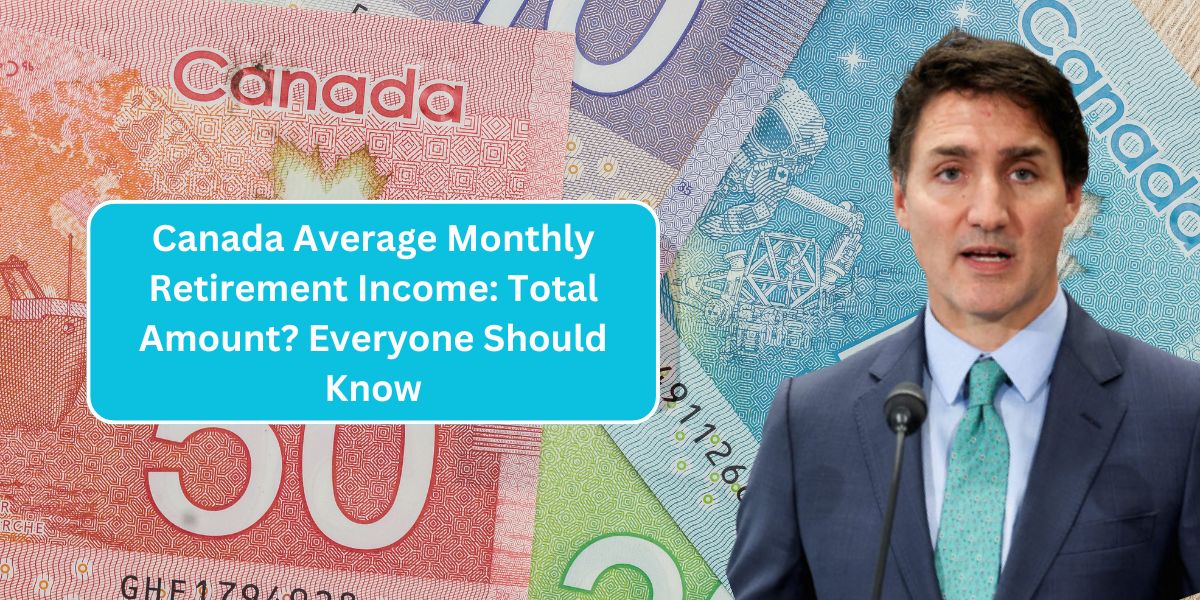In this article, you will learn about the Average Monthly Retirement Income in Canada: What’s The Amount? Many Canadians are concerned about the rising cost of living and the impact of inflation on their retirement savings. The average retirement income in Canada varies each year and is influenced by overall inflation. Retirement recipients must plan to bridge their income gap to achieve their financial goals. According to the Canadian Income Survey, the average after-tax income is $5,825 per month. For more details on the Average Monthly Retirement Income in Canada, continue reading this article.
Table of Contents
Average Monthly Retirement Income in Canada
The average monthly retirement income in Canada varies based on individual retirement saving goals, which depend on factors such as spending, debts, savings, and lifestyle. Approximately 44% of Canadians have confidential sources of sufficient funds. Retirement income also varies depending on individual status and the number of household members. While future scenarios cannot be precisely predicted, successful retirees generally plan for a modest amount.
| 4000 Centrelink Payout Date 2024 |
| 1517 Tax Free Rates Australia 2024 |
| Ssdi Ssi Va Stimulus Check July |
| Cai Carbon Tax Rebate Cheques Dates 2024 |
| 1255 Social Security Monthly Checks |
Currently, the average retirement income in Canada is $65,300 CAD per household before taxes. This equates to 32,650 CAD per person for a couple. Individuals with below-average income may struggle with their average monthly retirement income. In addition to average income, retirees can also consider the three pillars of retirement income, which provide monthly financial assistance benefits after retirement age.
What’s The Amount?
According to the Canadian Income Survey, the average after-tax income for seniors is $69.9K annually. For individuals, the average income is $31.4K, translating to $2,616 per month. For couples, the average monthly income is $5,825. However, the actual income received can vary significantly based on individual expenses.
Individuals should begin planning for retirement by the age of 35. In Canada, there are several sources of retirement income that provide monthly financial support after retirement. These plans are primarily designed for young people to prepare for their retirement. Upon retirement, individuals can receive monthly income through various sources, including Federal Government programs and personal savings.
Retirement income amounts vary based on individual income, but several sources contribute to retirement income. The Canada Pension Plan (CPP) provides monthly retirement income based on the contributions made during an individual’s working years. Additionally, Quebec and Alberta have their own pension plans, which also offer monthly payments based on contributions and age.
Another key retirement pension is the Old Age Security (OAS), which provides monthly assistance starting at age 65. OAS benefits are determined based on an individual’s residency in Canada after turning 18. Retirees aged 65 to 74 receive a monthly payment of CAD 707.68, while those aged 75 and older receive CAD 778.45 per month.
In addition to government pension plans, employer-sponsored pension plans and personal retirement savings and investments play a crucial role in providing retirees with their retirement funds. Employer-sponsored pension plans come in two main types: Defined Benefit Plans (DBP) and Defined Contribution Plans (DCP). Personal retirement savings and investments, such as those through the Employee and Employer Savings Plans (EESP) and Tax-Free Savings Accounts (TFSA), also contribute to retirement benefits.
You Should Know
The Average Monthly Retirement Income refers to the federal financial support that varies based on the recipient’s income and expenses. The Canadian government offers several retirement income plans to provide financial support to retirees.
In Canada, Average Monthly Retirement Income comes from three main sources: government-sponsored retirement income, employer pension plans, and personal investments or savings. Relying solely on government support is often insufficient for a comfortable retirement.
| 2400 Stimulus Checks Announced For 2024 |
| Rent Assistance For Aged Pensioners In Australia |
| Disability Benefits Arrival Dates |
| Average Hourly Wage In Australia |
| Stimulus Check 4 Expected Date |
To ensure adequate funds for retirement, recipients should make investments and savings in addition to their government benefits. The average income depends on individual and household expenses, and pension payments are based on the amount of contributions and the duration of contributions made.
FAQs
What is the average retirement account balance in Canada?
The average Canadian aged 65 and over has approximately $129,000 saved in their RRSP. When including the Tax-Free Savings Account (TFSA), this figure rises to around $160,000. Overall, the average retiree has saved about $319,000. Note that these figures are based on Ratehub’s survey sample.
Is $5,000 a month enough to retire comfortably in Canada?
With a portfolio valued at $1.3 million or more, it is generally sufficient to withdraw $5,000 per month from age 50 to age 95, with the amount adjusted annually for a 3% inflation rate.





